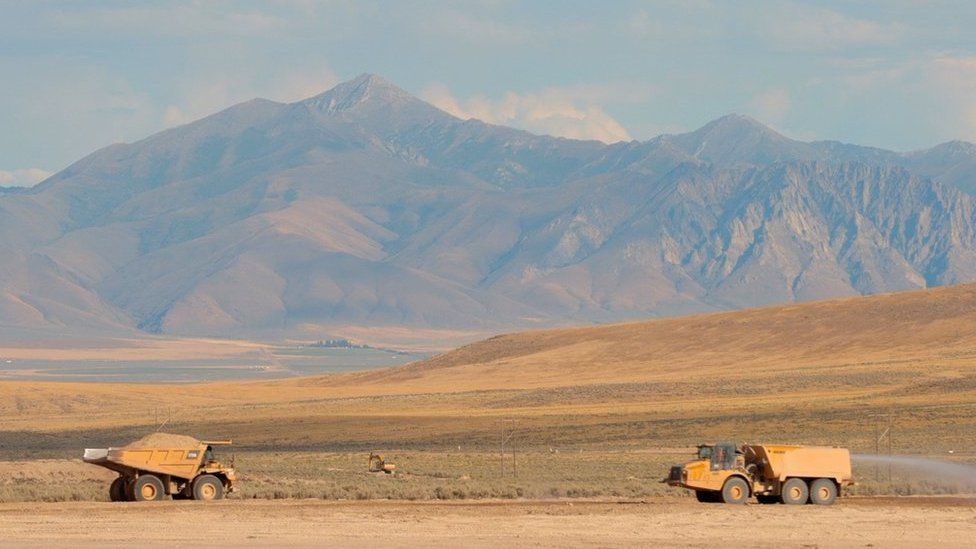-

-
-
Loading

Loading

In the high desert of Nevada near the Oregon border, there is a major deposit of lithium, a critical component of electric car batteries. President Joe Biden is advocating for its extraction, although this has caused a rift among communities that typically align on political issues. Environmentalists and indigenous communities are at odds over whether the pursuit of this "white gold" should be supported or vehemently opposed. The controversy arose when mining operations, led by Lithium Americas, began in Thacker Pass, an area of exceptional beauty formed by an ancient volcano. After years of legal battles, Lithium Americas secured permission to mine the region. President Biden has expressed his desire for the US to become a global leader in electric vehicles and hopes to source the necessary lithium domestically, as the country currently relies heavily on imports. However, some environmentalists argue that expanding lithium mining is the wrong approach due to its detrimental impact on the environment. They advocate for reducing mineral demand through behavioral changes and pursuing alternative solutions to address climate change. This disagreement has even caused divisions within the environmental community itself, with individuals like Glen Miller, former board member of local environmental charity Great Basin Resource Watch, supporting the mine while others oppose it. Miller, a former academic, recognizes the significance of lithium in transitioning the transportation industry towards electrification and combating climate change. Although some environmentalists suggest reducing reliance on technologies that require mining metals, Miller believes such changes are unlikely to occur on a large scale. Tim Crowley, vice-president of government affairs at Lithium Americas, considers himself an environmentalist despite his longstanding advocacy for mining projects in Nevada. The fissures caused by the Thacker Pass mine extend beyond the environmentalist community. The indigenous Shoshone-Bannock and Paiute tribes believe the area is the site of a 1865 atrocity, where their ancestors were murdered by the US Cavalry. They argue that the land, currently owned by the Bureau of Land Management, was stolen from local people, and the decision regarding its use should rest with them. Lithium Americas contests the claim that the massacre occurred on their mining site and has won legal battles supporting their position. The company highlights that some local indigenous people are already involved in and supportive of the mine. However, for those like Ka'ila Farrell-Smith, a member of The People of the Red Mountain, the project represents a modern form of "green colonialism," where native communities are disregarded in the pursuit of climate change mitigation measures. At present, the Thacker Pass mine is still in its early stages, and lithium production is not expected until at least 2026, with General Motors as the intended recipient. However, concerns persist among The People of the Red Mountain that this mine is just the beginning. Given the abundance of lithium in the area, multiple companies have expressed interest in mining operations. Lithium Americas openly acknowledges its ambitions for the region, emphasizing that more lithium development is crucial for the US to achieve self-sufficiency. If plans proceed, this extraordinarily picturesque area may be marred by the proliferation of lithium mines, all in the name of environmental preservation.